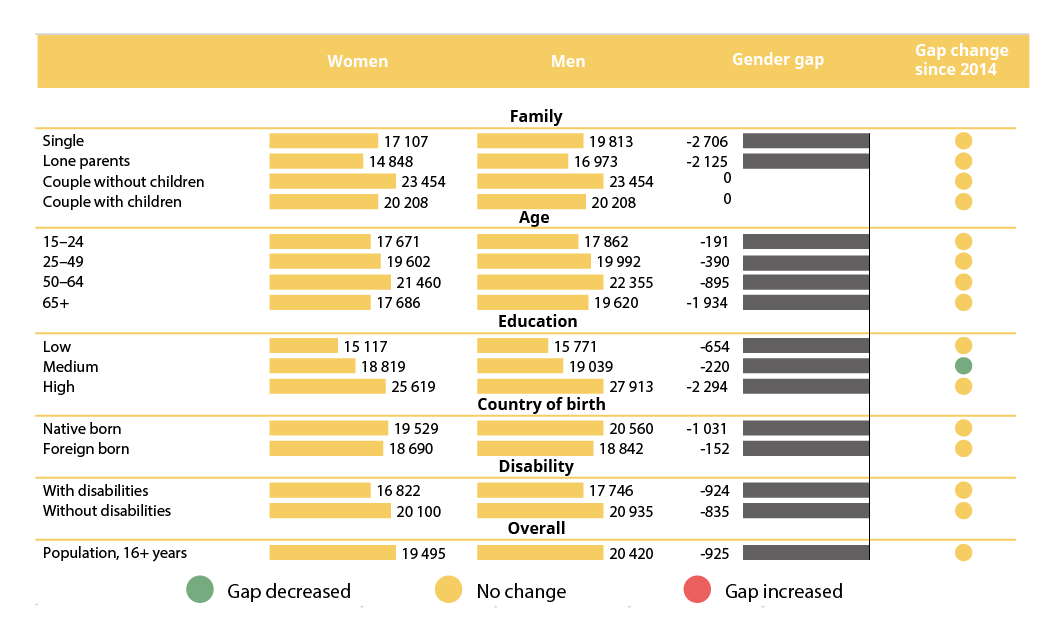COVID-19 exacerbates women’s economic vulnerability and hardship
Poverty or social exclusion risks were already higher for women than for men in the EU before the pandemic (EIGE, 2020g). Women were already more likely than men to be in unpaid, low-paid or temporary jobs. The COVID-19 crisis is likely to worsen women’s economic situation, as their over-representation in sectors badly hit by lockdowns means that they are more likely than men to lose their job or have their working hours reduced (EIGE, 2021c; ILO, 2021).
Women aged between 15 and 24 years were the group most likely to lose their job in the first half of 2020 (Eurofound, 2021a), given that they are employed in high numbers in hospitality, retail, arts and entertainment.
The closure of schools and childcare services further limited parents’ employment possibilities, especially mothers, and increased the risk of poverty in households with dependent children. Eurofound’s COVID-19 online surveys show that households with children struggle to make ends meet much more than those without (Mascherini and Bisello, 2020). The COVID-19 pandemic is likely to have increased the poverty risk, especially for lone mothers and their children.
The extent to which the burden of the COVID-19 crisis falls on women and on men depends on pre-crisis inequalities and how recovery response policies mitigate the effects of the pandemic. Since spring 2020, all Member States introduced some income support measures to those affected by the pandemic.
However, women were less able than men to access income support either because a protection scheme was not available in the sectors of their work or, if it was, provided lower benefits, or because they did not meet eligibility criteria. Women predominantly work in sectors, types of firms or jobs that were not or less covered by specific crisis-related job protection schemes (Rubery and Tavora, 2020).
Furthermore, women have more difficulties meeting eligibility criteria due to shorter or interrupted careers, which are of importance, for example, to access unemployment or parental leave benefits. The type of income support women receive, compared with men, reflects their different positions in the job market, as well as their disproportionate burden of care duties. Gender-sensitive recovery needs to address the gender pay gap by promoting equal share of care responsibilities and by better valorising those working in frontline, low-paid and precarious jobs, such as carers, nurses and cleaning staff.
Figure 9. Mean equivalised net income by sex, family composition, age, education level, country of birth and disability (PPS, 16+ years, EU, 2019)
Source: Authors’ calculation, EU-SILC, 2019 (IE, IT, 2018).
NB: The equivalised net income is calculated at the household level, taking into account all sources of income of all members of the household. resulting total income is split between members of couple, hence explaining the absence of gender gap for couples.
Income gaps are more difficult to assess for hard-to-reach populations such as undocumented migrants and the Roma. These groups are more likely to participate in informal and infrequent work, making it harder to report their income levels. A study of six Member States found that Roma and Travellers reported struggling to make ends meet. In Sweden and the Netherlands, Roma are about 13 times more likely than the general population to live in poverty (FRA, 2020c). Roma women are also more likely to perform unpaid care work, leading to an employment gap of 18 p.p. with Roma men (FRA, 2016).
